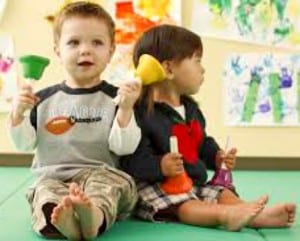
The study involved 48 children ages two to three years old. For the experiment, a child had the opportunity to play with two toys: a quiet toy and a loud toy. Next, a researcher introduced a doll, instructing the child to either let the doll sleep or wake the doll up. The child then went back to playing with toys with no further instruction from the researcher.
The researchers theorized that if children know that the noises they make affect others, then they would adjust their play accordingly. That is, if they were instructed to wake the doll, they would play with the loud toy, and vice versa.
Children do understand the psychological and behavioral effects of different types of sound. The children instructed to wake the doll made louder sounds and more frequently selected the loud toy to play with. The children instructed to let the doll sleep made quitter sounds. Children with siblings were especially keen at understanding how their noise level impacts others.
“We were excited to see that young children tried to wake the baby with loud sounds. They also played quietly to let the baby sleep,” said Dr. Rebecca Williamson, assistant professor of psychology at Georgia State.
This research is published in the Journal of Cognition and Development.
Previous news in pediatric psychology:



 © 2025 Unyte Health US Inc.
© 2025 Unyte Health US Inc.